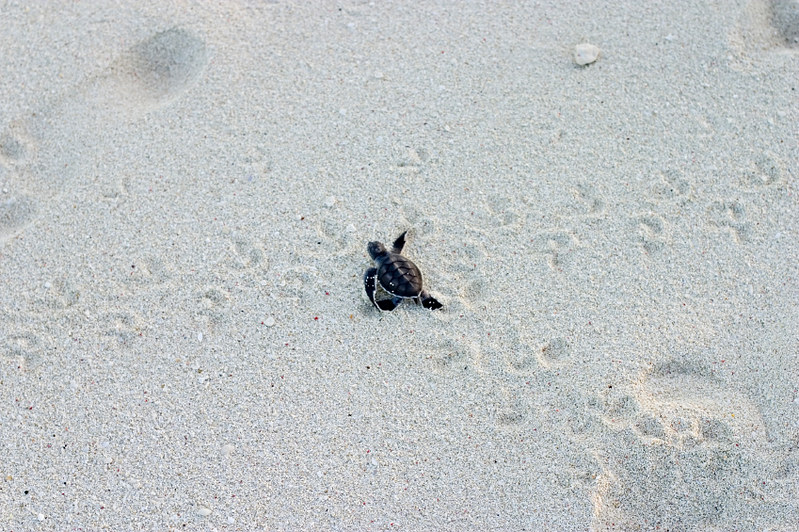
Planet A
New research from the University of Melbourne may provide a better framework for biologists to predict individual species’ vulnerability to extinction as a result of climate change. The study examined the impact of rising global temperatures on reproductive ability and found that maximum temperatures for procreation, known as fertility limits, are several degrees lower than the maximum temperature for the sustaining of life, known as critical thermal limits. This suggests that infertility due to rising temperatures may threaten many species with extinction sooner than previously predicted.
It’s difficult to predict specific impacts of climate change on fauna, particularly given the variability of effects in different geographic contexts and species. A recent report by ASPI’s Robert Glasser demonstrates that rising temperatures will induce a higher frequency and intensity of El Niño and La Niña events in tropical and subtropical regions, which may trigger a series of cascading climate impacts. A better understanding of variations in weather conditions and individual species’ abilities to adaptation will help to predict how climate change will impact the animal kingdom under different temperature scenarios.
Democracy watch
Myanmar military forces are continuing their crackdown on anti-coup protests. On Monday they opened fire on protestors, killing at least eight people. The violence follows an ASEAN emergency summit where leaders, including Myanmar junta chief General Min Aung Hlaing, agreed to a five-point consensus for the country, starting with the immediate cessation of violence.
Protesting has continued both on the streets and online, with many citizens frustrated by the lack of ASEAN consensus on releasing the estimated 3,400 political prisoners being held by the junta, including ousted leader Aung San Suu Kyi, and the exclusion of the pro-democracy group the National Unity Government from official talks. The country has been embroiled in widespread protests since Myanmar’s military instigated a coup to remove elected leader Suu Kyi in February. Having already resumed violence against protestors, doubts remain as to whether Min Aung Hlaing will adhere to the rest of the ASEAN plan, calling into question the group’s ability to de-escalate violence and restore stability to Myanmar.
Information operations
Cyber intelligence firm FireEye has released a report detailing an ongoing influence campaign named Ghostwriter, which is primarily targeting people in Lithuania, Latvia and Poland. The campaign initially focused on promoting narratives critical of NATO’s presence in Eastern Europe, but since it was first identified in July, it has expanded its activity to target Polish domestic politics. The campaign hacked the social media accounts of Polish parliamentarians on the political right, including Family and Social Policy Minister Marlena Maląg, to post comments attacking female activists protesting Poland’s new anti-abortion laws in what seems like an attempt to sow domestic political disruption.
While FireEye said it couldn’t fully attribute Ghostwriter to a single entity, the company identified a suspected state-sponsored cyberespionage actor called UNC1151 as having conducted some of the influence activity. FireEye could not conclusively identify which state supports UNC1151, but Russia is a suspect given that Ghostwriter’s activity aligns with its interests. The expansion in scope of the influence activities in this campaign sets a worrying precedent for the development of cyber-influence campaigns in Eastern Europe and highlights the vulnerabilities of public figures’ online accounts. The hacking of a politician’s profile, for example, presents a significant challenge for social media platforms, as it’s difficult to remove inauthentic activity from an authentic account.
Follow the money
The world largest computer chip maker, Taiwan Semiconductor Manufacturing (TSMC), has announced plans to invest US$2.8 billion in the Chinese city of Nanjing to manufacture 28-nanometre automotive chips. The company has faced turmoil because of the US–China trade war and was forced to suspend its business with Huawei for 5-nanometre chips under a US blacklist of the Chinese tech giant.
The new investment indicates that even though the US has used blacklists to constrain Chinese technology development, it has not fully cut off TSMC’s business ties with China. Although the production of automotive chips doesn’t pose a national-security threat, many have argued that this kind of investment will give Chinese manufacturers the resources to develop the more advanced chips needed to give China an indigenous semiconductor capability, lessening its dependence on foreign manufacturers.
Terror byte
Last week, ASIO Director-General Mike Burgess said his agency anticipates that Australia will experience a terrorist attack within the next 12 months. Speaking at a parliamentary inquiry into the rise of radicalism and extremist movements, Burgess characterised the internet as a force multiplier that enables hate groups to further disseminate their messages and radicalise more people than they otherwise could.
Although Sunni Islamic extremists—particularly members of the Islamic State group—remain a major security threat, Burgess noted that ‘young Australians are being ensnared in these racist, supremacist and misogynist ideologies in a way that is deeply concerning’. Racist and nationalist violence is on the rise, he said, but the threat of attacks by small cells and lone actors poses the most concern to ASIO, regardless of their ideological roots. The growing prevalence of extremist ideology raises questions about how Australia’s security agencies will be able to keep up with and manage the threat of terrorism.

